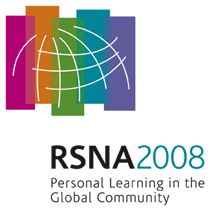
Abstract Archives of the RSNA, 2008
SSE02-02
Arbitration Cancers in a Population-based Breast Cancer Screening Program Performing Independent Double Reading with Consensus
Scientific Papers
Presented on December 1, 2008
Presented as part of SSE02: Breast Imaging (Mammography)
Solveig Sand-Hanssen Hofvind, Presenter: Nothing to Disclose
Berta M. Geller, Abstract Co-Author: Nothing to Disclose
Per Skaane MD, PhD, Abstract Co-Author: Nothing to Disclose
To compare the proportions and radiological features of arbitration and concordant cancers diagnosed in a population based breast cancer screening program with routine independent double reading using consensus.
In 1,033,872 independently double read screening mammograms 5,611 breast cancers were detected. A 5-point interpretation scale indicating increased probability of cancer similar to BI-RADS describes the initial assessmnet. Mammograms with a score of 1 by one of the radiologists (discordant) and 2 or higher by both radiologists (concordant) are discussed at consensus, where the final decision to recall or not is made. Breast cancer cases diagnosed as a result of the discordant score are defined as arbitration cancers.
Twenty-four percent (1,311/5,611) of the screen detected cancers were arbitration cancers; 10% (549/5,611) had a negative interpretation by Reader 1 while 14% (782/5,611) had a negative score by Reader 2. Positive predictive values were 8% (1,331/17,488) for discordant recalls and 23% (4,280/18,575) for concordant recalls (p<0.00q). Mammographic features did not differ between arbitration and concordant cancers except for calcification without associated masses, which was 24% significantly more common (290/1,229) in arbitration compared to concordant cancers (17%, 677/3,959, p<0.001)
Screening mammography using independent double reading with consensus detected at least 10% more cancers than if the first reader was the only reader. We cannot discern from this study wether the cases were missed due to perception or interpretation error.
This study add knowledge to the issue of cancer detection in screening mammography
Hofvind, S,
Geller, B,
Skaane, P,
Arbitration Cancers in a Population-based Breast Cancer Screening Program Performing Independent Double Reading with Consensus. Radiological Society of North America 2008 Scientific Assembly and Annual Meeting, February 18 - February 20, 2008 ,Chicago IL.
http://archive.rsna.org/2008/6015590.html

